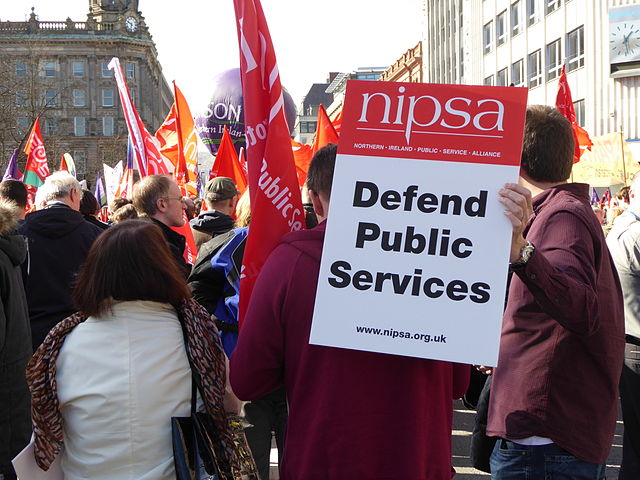

ON 18 DECEMBER over 20,000 Northern Ireland health workers from four unions, RCN, Unison, NIPSA and Unite were involved in strike action in pursuit of pay parity and improved staffing levels. This was the first strike ever mounted by the Royal College of Nursing. In the new year this was followed up with further strikes by nurses in the RCN and Unison.
Pay parity ended with the rest of the UK in 2014 when Jim Wells (DUP), the Health Minister for the Northern Ireland Executive, imposed a “degree of restraint” on pay for health care workers due to “financial challenges” in the department. The Assembly Executive approved this austerity, backed by all the main political parties including the DUP and Sinn Fein.
In January, as a result of union action, the Health Minister promised £79 million to increase pay and restore pay parity with an extra £30 million from existing Stormont finances. Union leaders quickly suspended strike action and ballot results from RCN, Unite and Unison have accepted terms of the deal.
Restoring pay parity is no doubt a victory but the fourth union NIPSA, now holding pay ballots, has quite rightly recommended a rejection of the pay proposals for 2020/21 as they were below inflation pay rises for all staff who are at the top of their pay bands, i.e. the majority of staff. On Safe Staffing NIPSA rejected the deal as it “did not see that it provided detail for our members” and industrial action short of strikes may continue.
No one should underestimate the existential crisis affecting Health and Social Care in Northern Ireland. In November a Westminster committee reported on health services “deteriorating to the point of collapse” in the North. There was serious concern that a long-term funding strategy was needed and “acute issues facing the health service” included cancer waiting times, shortages in social care staffing and inadequate mental health funding.
Westminster’s current funding proposals go nowhere near addressing these acute shortfalls. Only a class wide response, with coordinated industrial action at the heart of the struggle, can secure a fully funded health service meeting everyone’s needs.